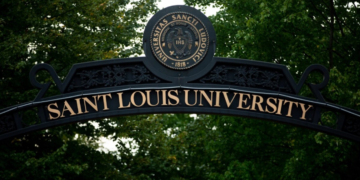Dec 27, 2024 Story by: Editor
More than two years after the California Reparations Task Force put forth its initial set of policy recommendations aimed at addressing the generational impacts of slavery and post-slavery institutional racism, the movement has encountered significant obstacles.
The fervor for legislative action on reparations for Black Americans, particularly in California—a state that entered the Union as a free state in 1850—was expected to diminish as the racial reckoning sparked by media cycles and public support faded.
However, the unwavering dedication of policymakers pursuing racial “solutions” to systemic social issues should not be underestimated. Earlier this month, Assemblyman Isaac Bryan introduced Assembly Bill No. 7 (AB 7), which proposes adding the following provision to the state’s education code:
“[T]he California State University, the University of California, independent institutions of higher education, and private postsecondary educational institutions may consider providing a preference in admissions to an applicant who is a descendant of slavery, as defined, to the extent it does not conflict with federal law.”
Assemblyman Bryan, the incoming vice chair of the Legislative Black Caucus, argues that giving admission priority to descendants of slavery is a “moral responsibility” to address racial inequality and systemic injustice. Bryan also notes that his bill is partly a response to former President Trump’s opposition to diversity, equity, and inclusion programs.
AB 7 has garnered support from prominent Democratic figures, including Assemblywoman Mia Bonta, wife of State Attorney General Rob Bonta, and State Senator Akilah Weber, daughter of Secretary of State Shirley Weber.
Although the bill doesn’t explicitly mention race, other than recognizing California’s ban on racial preferences, it is evident that the descendants of slavery are being used as a proxy for race. In an interview with California Black Media on the day of AB 7’s introduction, Assemblyman Bryan expressed his commitment to advocating for Black Californians in his new leadership role. He pledged to fight for their “fair access to resources and opportunities in every aspect of life, whether it’s education, jobs, or health.”
This bill represents a bold move in the face of political challenges for reparations. As of May 2023, Governor Gavin Newsom had scaled back his support for reparations, stating that he would not back any cash payments. In June, state senators rejected ACA 7, a constitutional amendment aimed at legalizing “research-based/-informed” exemptions to California’s ban on racial preferences. By September, even the Black Caucus, a key advocate for reparations in the state legislature, began to show signs of hesitation.
In an effort to avoid protests from the Reparations Task Force and activists, the Black Caucus delayed voting on two priority reparations bills, Senate Bill 1403 and Senate Bill 1331. These bills aimed to establish a state fund for reparations and create a Freedman Affairs agency to confirm claims, both seen as critical steps for other reparations initiatives. Soon after, Governor Newsom vetoed Senate Bill 1050, which focused on “racially motivated eminent domain.”
California’s dwindling political support for reparations became a potential source of embarrassment for the Democratic Party, possibly dissuading Black voters in the November election. Therefore, it is politically strategic for the new leader of the Black Caucus to reintroduce reparations in the new legislative session—whether to demonstrate ambition or salvage credibility with reparations supporters.
Unfortunately, Assemblyman Bryan and the co-authors of AB 7 seem to be appeasing a small group of activists, potentially disregarding the growing bipartisan consensus against government-imposed preferences. It is worth recalling that in 2020, 57.23% of California voters rejected Proposition 16, which would have repealed Proposition 209—a longstanding target of the Reparations Task Force. Furthermore, a 2023 YouGov poll found that support for reparations had decreased from 39% in 2019 to 31%.
It may be politically easier to push for racial fixes than to tackle the more difficult task of closing the achievement gaps at the K-12 level. However, racial preferences in college admissions as a form of reparations only serve to deepen these disparities and cultivate a growing indifference to excellence. The University of California system, for example, has long bypassed the constitutional ban on race-based affirmative action, instead opting for socioeconomic proxies and, more recently, a test-blind admissions process.
There is no need for the California Legislature to intervene in furthering preferential treatment, especially when such policies might only exacerbate existing challenges. Source: Daily News

















